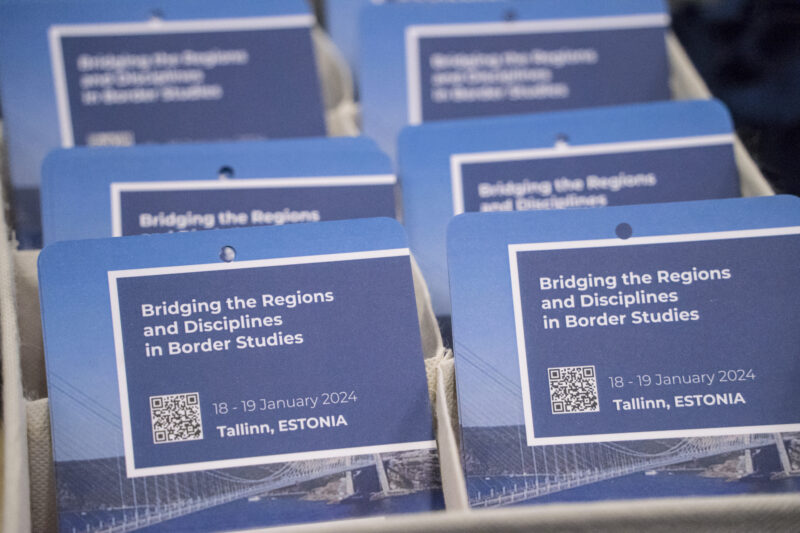
As a side event of the symposium, a screening of Raise Me a Memory (Läinud on Jäänud in Estonian) – a documentary film – took place at Tallinn University’s SuperNova Cinema on January 17. The event attendees included symposium participants, Tallinn University students and staff, other interested public, and some filmmakers and characters featured in the film. The film’s director Varun Trikha – a Delhi and Toronto-based auteur filmmaker – attended the screening and answered questions about the film.
The film, shot in Estonian borderlands near Russia, connects the experience of a small Estonian community to the trauma of the director’s own family during the post-World War II partition of India and Pakistan. The film weaves together conversations with Estonia borderlanders with narration from the director. The visual elements of the film feature dream-like imagery enhanced by a dynamic soundscape that blends Indian music with a symphony of rural life. The film presents an engaging non-linear narrative. In a review of the film for the Yamagata Film Criticism Workshop 2023, Emilie Choi Sin-yi, Hong Kong-based researcher, writer, and curator, notes,
The film’s fragmented nature, lacking a clear historical context, requires viewers to piece together the puzzle of the labyrinth of landscape – the tranquil lake, the shadowy trees, and the dusty old wood house – without specific background information.
The director Varun Trikha discussed the film’s making, describing the organic development of the film’s narrative with emphasis on the critical role of the editing process in bringing the film’s final format together. He also noted the challenges of drawing on fragmented historical evidence about his family’s history. Rahul Sharma, a filmmaker and cinema researcher, and Kersti Uibo, the associate producer of Raise Me A Memory, moderated the question and answer session.
John Buchanan, a researcher at Tallinn University and member of the Eur-Asia Border Lab, notes that the film’s focus on the lives of borderlands in Estonia through a Delhi and Toronto-based filmmaker’s perspective meshed with the symposium’s goals of bridging cross-regional conversations between border scholars studying Asia and Euro-American borders. The event was followed by a reception where participants had the opportunity to share their views on the film.